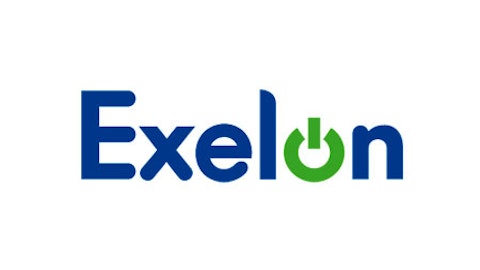The best thing about the stock market is that you can make money in E TRADE Financial Corporation (NASDAQ:ETFC) either direction. Historically, stock indexes have tended to trend up over the long term. But when you look at individual stocks, you’ll find plenty that lose money over the long haul. According to hedge-fund institution Blackstar Funds, even with dividends included, between 1983 and 2006, 64% of stocks underperformed the Russell 3000, a broad-scope market index.

| Company | Short Increase Dec. 31 to Jan. 15 | Short Shares as a % of Float |
|---|---|---|
| National Grid plc (NYSE:NGG) | 46.1% | 0.1% |
| TD Ameritrade Holding Corp. (NYSE:AMTD) | 32.9% | 5.5% |
| American Express Company (NYSE:AXP) | 36.7% | 1% |
Source: The Wall Street Journal.
Nemo bites back
I understand we’re talking about short-selling activity made roughly a month ago, but those are now looking like very prescient calls with winter storm Nemo socking it to the Northeast.
National Grid is an electric utility provider that operates electric and gas transmission lines in Great Britain, New York, and throughout New England. As you might expect, Nemo’s wrath, which followed that of Hurricane Sandy just months earlier, is wreaking havoc on electric utilities, which have been forced to dig deep into their pockets to complete repairs. The latest estimates from The Huffington Post as of this writing were that 650,000 people across the Northeast are currently without power. So the question is, do shorts have justification in betting against National Grid given the costly repairs about to ensue?
I’d say over the extreme short term, short-sellers may be in control as costs could creep up. However, looking at National Grid as an investment instead of a trade, there’s very little reason not to believe it’s heading higher. It’s one of the least expensive utilities around at 12 times forward earnings, and it boasts a near monopoly on the U.K’s gas pipelines and electricity wires according to my Foolish colleague G.A. Chester. Its global diversification allows for very consistent cash flow, which has translated into a very healthy 4.2% yield.
Fear and loathing among the brokerage industry
The S&P 500 may be at a five-year high, but that doesn’t seem to matter to investors who are making fewer trades at brokerage firms like TD AMERITRADE and E*TRADE Financial .
Both TD AMERITRADE and E*TRADE reported their quarterly results in late January, and it was much of the same when it came to trading volumes. AMERITRADE noted that its quarterly profit fell 3.3% as commissions and fees dropped 5.8%. E*TRADE demonstrated an even worse drop in daily average revenue trades, which fell 9% over the previous year. But while E*TRADE is still struggling to rid itself of bad debts five years after the mortgage meltdown began, TD AMERITRADE has quietly been positioning itself for a big run when trading volumes rebound and rates begin to rise.
In its same quarterly report, TD AMERITRADE demonstrated big net asset growth of $15.6 billion during the quarter and ended the year with $480.8 billion in client assets. These assets will become important as interest rates rise and investors move their assets out of bonds and into stocks, making AMERITRADE a potentially sneaky brokerage play. While short-sellers are in control now, don’t expect that trend to continue for much longer.
Life in plastic, it’s fantastic
Bet against credit card processors? What are you people, nuts? I’ve been quite clear that credit card usage is only expected to rise over the next few decades and there’s ample room for growth for all companies involved in the emerging markets.
In American Express’ most recent quarterly report, a 47% decrease in net income didn’t exactly inspire investors. However, sans the restructuring costs that dragged down its results, American Express was able to report an 8% rise in card-member spending and a rise in net interest income — a surprise given the low-interest-rate environment.
Furthermore, American Express has been challenging territory that’s been previously dominated by NetSpend Holdings Inc (NASDAQ:NTSP) — prepaid debit cards. With AmEx’s larger financial backing, companies like NetSpend could find it difficult to forge new partnerships as larger credit lenders work their way into the prepaid debit space. AmEx has also been proactively offering consumers similar protections to those afforded by its credit card holders with their prepaid debit cards, an action offered by few prepaid credit services.
AmEx is poised for big growth overseas, and now is not a smart time to bet against credit lending and processing services.
The article Shorts Are Piling Into These Stocks. Should You Be Worried? originally appeared on Fool.com and is written by Sean Williams.
Fool contributor Sean Williams has no material interest in any companies mentioned in this article. You can follow him on CAPS under the screen name TMFUltraLong, track every pick he makes under the screen name TrackUltraLong, and check him out on Twitter, where he goes by the handle @TMFUltraLong.Motley Fool newsletter services have recommended buying shares of National Grid, TD AMERITRADE, and American Express, as well as writing puts on TD AMERITRADE and creating a covered strangle position in American Express.
Copyright © 1995 – 2013 The Motley Fool, LLC. All rights reserved. The Motley Fool has a disclosure policy.





